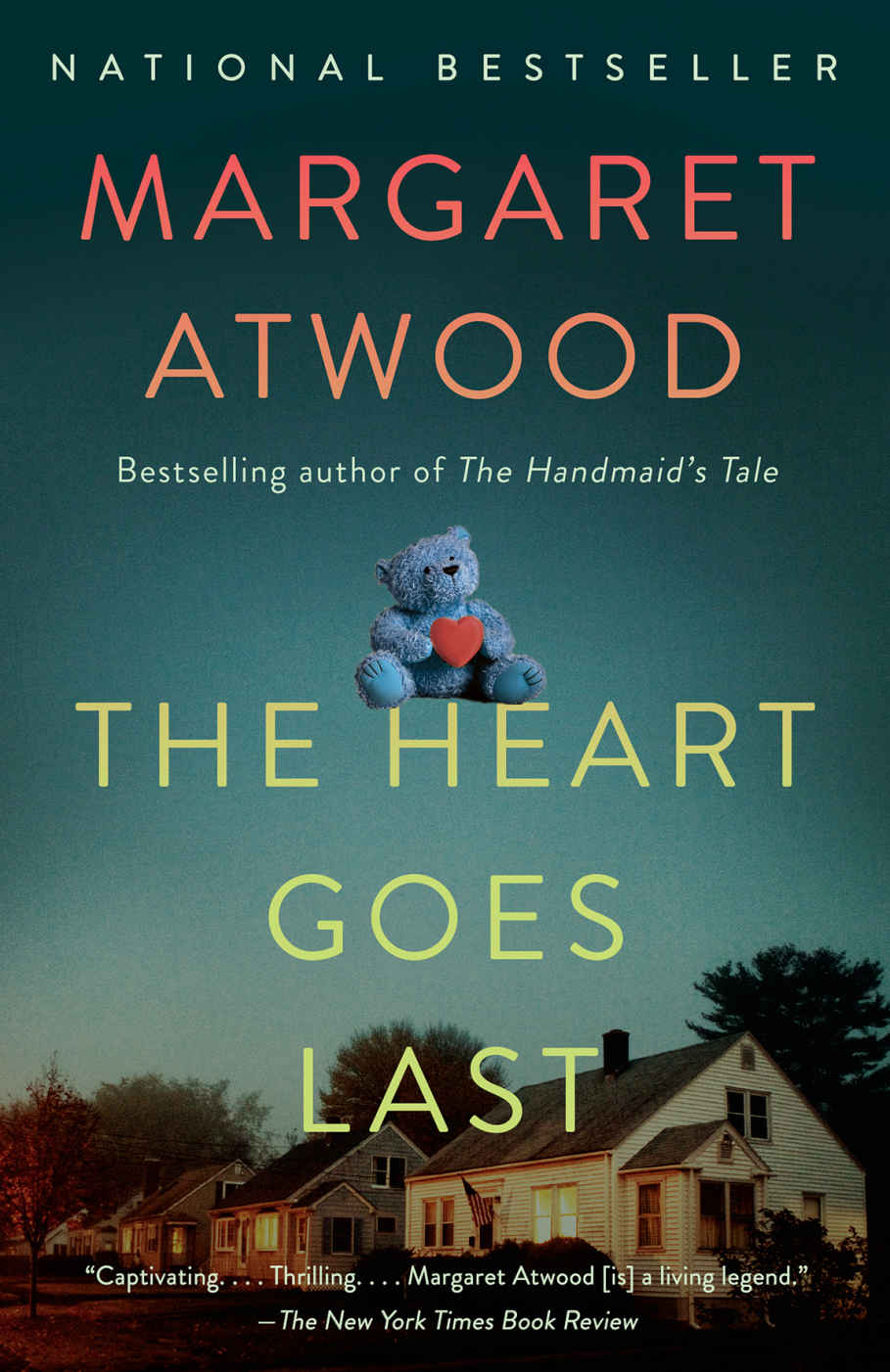
The Heart Goes Last
Positron
- اطلاعات
- نقد و بررسی
- دیدگاه کاربران
نقد و بررسی

Starred review from June 29, 2015
In the dystopian landscape of the unflappable Atwood’s (Stone Mattress) latest novel, there are “not enough jobs, and too many people,” which drives married couple Stan and Charmaine to become interested in the Positron Project, a community that purports to have achieved
harmony. There is a catch, as Positron leader Ed explains: citizens are required to share their home with other couples, alternating each month between time in prison and time at home. It’s an odd arrangement, but one that temporarily satisfies Charmaine and Stan—until they each fall in love with the alternates they’re supposed to never see; their infatuations put the entire Positron arrangement into question. Atwood is fond of intricate plot work, and the novel takes a long time to set up the action, but once it hits the last third, it gains an unstoppable momentum. The novel is full of sly moments of peripeteia and lots of sex, which play alongside larger ideas about the hidden monsters lurking in facile totalitarianism, and, as implied by the title, the ability of the heart to keep fighting despite long odds.

July 15, 2015
Dystopian cliches are played as farce in this nasty tale. Comparisons to Atwood's earlier work, an oeuvre of more than 40 volumes that includes the Man Booker Prize winner The Blind Assassin; the early feminist/dystopian classic The Handmaid's Tale; the pioneering mean-girls novel Cat's Eye; and the post-apocalyptic trilogy Oryx and Crake (2003), The Year of the Flood (2009), and Maddaddam (2013), are best avoided here. This slapped-together pastiche tells the story of Stan and Charmaine, a doltish young couple who have lost everything in some vague "financial-crash business-wrecking meltdown" and are now living in their car, hungry and on the run from rapists and other outlaws. In desperation, they eagerly sign up to live in a settlement called the Positron Project. Here, people alternate months between performing slave labor in a sex-segregated jail and living with their partners in a sterile suburban town called Consilience. The project's slogan is "CONSILIENCE = CONS+RESILIENCE. DO TIME NOW, BUY TIME FOR OUR FUTURE!"-and it's never going to make more sense than that. To an officially sanctioned soundtrack of Doris Day and Bing Crosby, Stan and Charmaine go about their appointed tasks, which include his providing poultry for incarcerated men to have sex with and her murdering people by injection. When the doll-like, almost subhuman Charmaine inexplicably throws herself into a tawdry affair with another man and Stan is reassigned to a sex-robot project ("As an on-demand sexual experience, it's said to be better than the bonk-a-chicken racket..."), the weak premises of the plot collapse, burying its characters in the rubble. Atwood is noted for satiric humor, but with the misanthropy of this book equaled by its misogyny, with women repeatedly melting "like toffee" and treating each other like "something that got stuck on their shoe" and "puppy throw-up," it's just not funny. The end of the novel, set in an "Elvisorium" full of gay Elvis impersonators in Las Vegas, will leave the few who have gotten that far completely bewildered. As one of a small group of authors who won literary credibility for dystopian fiction, Atwood has taught her readers to expect better.
COPYRIGHT(2015) Kirkus Reviews, ALL RIGHTS RESERVED.

Starred review from August 1, 2015
Formerly well-employed homeowners, Charmaine and Stan are now living in their cramped, smelly car, and they're lucky. After the whole system fell to pieces, most Americans are without work, shelter, or transportation, and many are willing to kill for a vehicle. As Stan becomes increasingly frantic, his rage stoked by the cushiness of his outlaw brother's life, Charmaine remains chirpy and upbeat, especially when she sees an ad for the Positron Project. She's sure it's the perfect solution, and readers will sense that they're in for some delectably caustic dystopian fiction. Sure enough, after the couple is accepted into Positron's maximum-security community, they learn that they'll spend one month in their comfortable little home, then one month separately incarcerated, working at assigned jobs, while another couple lives in the house. This lulling, numbing routine keeps them well-fed, under constant surveillance, and enslaved. So, naturally, everything goes devilishly awry. Ever-inventive, astutely observant, and drolly ironic, Atwood (Stone Mattress, 2014) unfurls a riotous plot of corporate rule, erotic mayhem, sexbots, brain-washing, murder, and Elvis and Marilyn impersonators. Her bristling characters range from right-on caricatures to unpredictably complicated individuals, especially the unnerving Charmaine. Atwood's ribald carnival of crazy deftly examines fear and the temptation to trade the confusion of choice and freedom for security, whatever the cost. This laser-sharp, hilariously campy, and swiftly flowing satire delves deeply into our desires, vices, biases, and contradictions, bringing fresh, incisive comedy to the rising tide of postapocalyptic fictionincluding, most recently, The Subprimes (2015) and The Blondes (2015)in which Atwood has long been a clarion voice. HIGH-DEMAND BACKSTORY: Atwood's prominence ensures big interest, and promotional efforts will showcase the polish, dark humor, and quicksilver brilliance of her latest provoking novel.(Reprinted with permission of Booklist, copyright 2015, American Library Association.)

April 1, 2015
In her first stand-alone novel since the Man Booker Prize-winning The Blind Assassin, published in 2000, Atwood draws on the same almost-here dystopia as her online Positron stories. Charmaine and Stan are barely getting by when they answer an ad for Consilience, a social experiment that allows them a comfortable home of their own in suburbia. The one little hitch is that every other month they must spend time in a prison cell. Classic Atwood.
Copyright 2015 Library Journal, LLC Used with permission.




دیدگاه کاربران